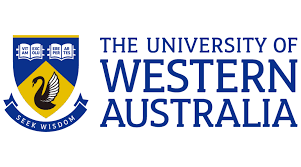University of Western Australia: Creating a brighter future for eye health in WA
A new Lions Chair in Optometry Translational Research at The University of Western Australia will position UWA as a global leader in the research and treatment of vision challenges.
The collaboration brings together ground-breaking scientific endeavour and highly respected medical researchers and health professionals.
Supported by the Lions Eye Institute, the Chair also will drive research leadership of the newly established first Doctor of Optometry program in Western Australia’s history.
The new Chair will develop and lead a strategy to reduce preventable blindness and increase accessibility of eye health services.
Managing Director of Lions Eye Institute Professor Bill Morgan said the partnership was critical to the future of eye health in WA.
“The new Chair will work collaboratively with Lions Eye Institute’s existing research team as well as the Ian Constable Chair in Discovery and Translational Ophthalmic Science and the Lions Curtin Chair in Ophthalmic Big Data – three new research leaders who will drive innovation for the benefit of patients and the wider community,” Professor Morgan said.
The first cohort of students in the Doctor of Optometry course, established with support from industry partners including Specsavers, Lions Eye Institute, Luxottica and Lions Outback Vision, are now in their second semester at UWA’s School of Allied Health.
The course focuses on the challenges associated with an ageing population and increasing ocular complications from chronic health conditions.
Specsavers Director of Optometry (Australia and New Zealand) Ben Ashby said Specsavers was excited to contribute to the new population of WA optometrists.
“With a growing and ageing population, it’s a great time for graduates to become an optometrist. We look forward to seeing the program blossom at UWA,” Mr Ashby said.
As well as producing high-calibre optometrists with a focus on early detection, diagnosis, treatment and management of eye disease and rehabilitation of ocular conditions, the program’s three-year postgraduate Doctor of Optometry degree includes a comprehensive research curriculum.
It also offers opportunities for students to gain first-hand experience working at the new Lions Outback Vision eye clinic in Broome.
With a growing need for culturally-aware eye-care professionals – the rate of blindness among Aboriginal and Torres Strait Islanders being three times higher than non-indigenous Australians – it’s an approach that will help to improve the distribution of practitioners in regional and remote parts of the State.
Dr Jennifer Campbell, Chief Allied Health Officer at the Department of Health (WA Health) said there was a substantial gap in eye care between those living rurally and those in the city.
“The leading causes of vision impairment in those over 40 in those communities are treatable but access to the required services just hasn’t been available,” Dr Campbell said.
For more information about the Doctor of Optometry course or to contribute to this research, please contact Kate McKenzie, Development Officer.

